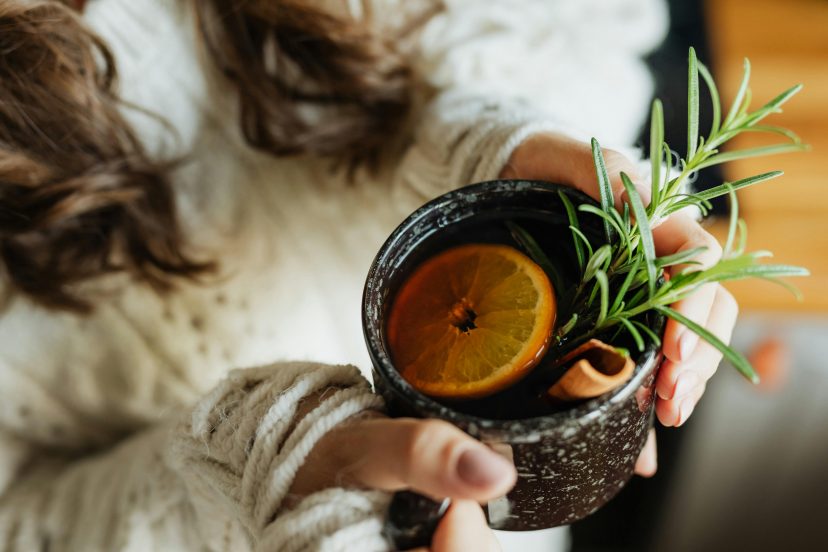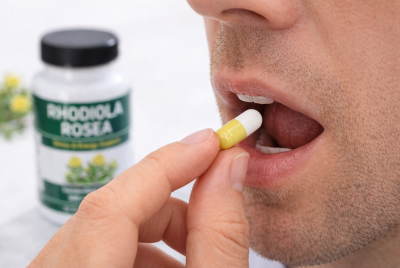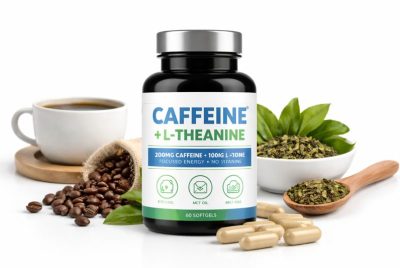10 Herbal Teas For Brain You Can Brew at Home
We may earn a commission for purchases made using our links. Please see our disclosure for more details.
Having trouble maintaining focus or mental clarity without resorting to another cup of coffee or a handful of pills? That endless cycle can leave you feeling jittery, overstimulated, or even burnt out. However, there is a more gentle and natural way to enhance your brain’s performance. Herbal teas that promote brain health provide a calming and effective option to boost memory, enhance concentration, and sharpen mental clarity—without the subsequent crash. Whether you’re studying, working, or simply looking to think more clearly, these easy-to-make brews can energize your mind right from your own home.
What Makes Herbal Teas Good for the Brain?
Herbal teas aimed at boosting brain function typically include compounds from plants such as flavonoids, antioxidants, and adaptogens. These compounds contribute to lowering inflammation, enhancing blood circulation to the brain, and aiding neurotransmitter activity. Unlike drinks containing caffeine, many herbal teas provide a sense of calm and sustained mental clarity without leading to overstimulation. A review published in 2021 in Frontiers in Neuroscience indicated that various plant-based ingredients have demonstrated the ability to improve memory and cognitive abilities, making them excellent options for natural cognitive support.
1. Ginkgo Biloba Tea
Ginkgo is one of the most researched herbs for cognitive health. It may enhance blood circulation in the brain, potentially improving memory and mental alertness.
Best for: Focus and memory support
Tip: Drink early in the day to avoid mild stimulation before bedtime.
2. Rosemary Tea
Rosemary isn’t just for cooking. This fragrant herb is known for stimulating the nervous system and enhancing memory. Studies suggest the scent alone may improve alertness.
Best for: Mental fatigue
Tip: Add a touch of lemon or honey to balance the earthy flavor.
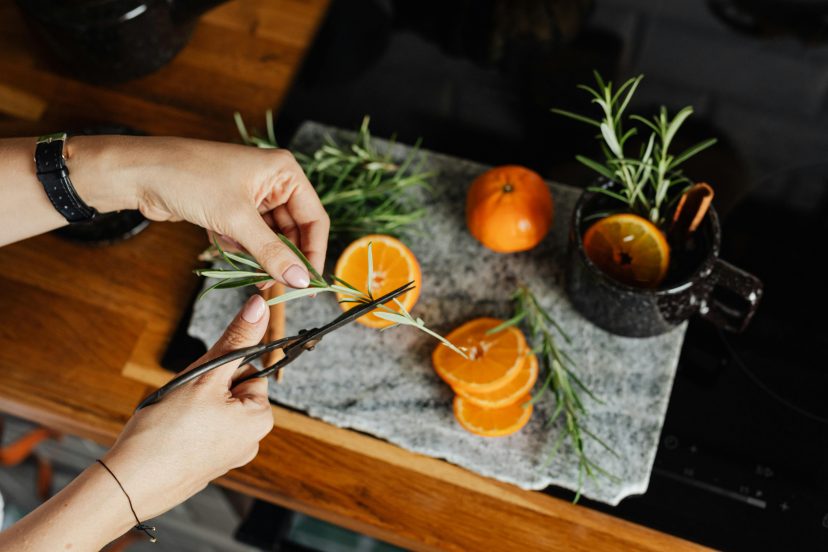
3. Gotu Kola Tea
Used in Ayurvedic medicine, Gotu Kola is believed to support brain function and promote relaxation. It’s often used to reduce anxiety and mental exhaustion.
Best for: Clarity and calm focus
Tip: Pairs well with green tea for added antioxidant benefits.
4. Peppermint Tea
Refreshing and invigorating, peppermint tea is a go-to for relieving brain fog and improving alertness. It’s also caffeine-free, making it great for any time of day.
Best for: Brain fog and fatigue
Tip: Great iced during hot afternoons for a cool mental lift.
5. Lemon Balm Tea
A member of the mint family, lemon balm has been shown to improve mood and cognitive function. It’s especially helpful for reducing stress-related brain drain.
Best for: Stress and cognitive performance
Tip: Steep longer for a more relaxing effect.
6. Green Tea
While technically not an herbal tea, green tea contains L-theanine and caffeine—two compounds that improve focus and attention without overstimulating. It’s a perfect morning brain boost.
Best for: Sustained energy and alertness
Tip: Choose organic to avoid pesticide residues.
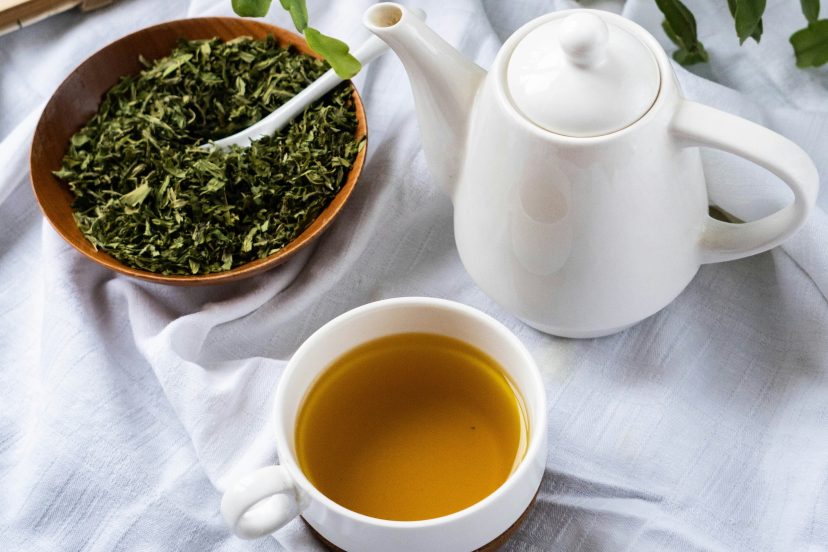
7. Ashwagandha Tea
Ashwagandha is an adaptogen known for reducing cortisol levels and enhancing resilience to stress. Over time, it may help improve brain performance under pressure.
Best for: Stress and brain burnout
Tip: Combine with warm milk or oat milk for a calming evening brew.
8. Sage Tea
Sage is rich in antioxidants and has been associated with improved memory and mood. Even small doses may positively affect cognitive performance.
Best for: Aging brain support
Tip: Sip slowly—sage has a strong, earthy flavor.
9. Bacopa Monnieri Tea
Another staple of Ayurveda, Bacopa is recognized for enhancing memory and learning. It works best with regular use over several weeks.
Best for: Long-term brain support
Tip: Steep with a natural sweetener to offset the bitterness.
10. Turmeric Tea
Turmeric contains curcumin, which has anti-inflammatory and neuroprotective effects. Regular turmeric tea may support memory and mood—especially when paired with black pepper.
Best for: Inflammation and mental clarity
Tip: Add a pinch of black pepper to increase curcumin absorption.
Research-Backed Benefits of Herbal Brain Teas
Many herbal teas praised for brain health are supported by compelling scientific evidence. For example, a meta-analysis on ginkgo biloba and cognitive performance published in JAMA Neurology found that taking 120–240 mg daily over 3–6 months led to measurable improvements in cognitive function among older adults. Further support comes from a comprehensive review on ginkgo biloba’s effect on cognitive decline, which suggests that this herbal remedy may help slow memory loss in individuals with mild cognitive impairment.
Other types of tea, such as lemon balm and green tea, have also been the subject of increasing research. Studies have indicated that lemon balm may help improve mood and concentration, whereas the combination of natural L-theanine and caffeine in green tea is still being investigated for its potential to enhance mental clarity and alleviate stress—making these herbal teas for cognitive health more than mere myths.
Final Thoughts
Herbal teas for brain health offer a delicious and natural way to improve focus, memory, and mental clarity—without relying on stimulants. Whether you prefer the calming effects of lemon balm or the energizing boost of green tea, there’s a brew for every brain. Want to make your tea routine even more effective? Pair these herbal blends with a balanced diet, regular exercise, and quality sleep for full cognitive support. If you’re also looking to explore supplements that help with motivation and drive, check out our detailed guide on top supplements for motivation and focus, perfect for coupling with your brain‑boosting tea routine.
FAQs
1. How often should I drink herbal teas for brain health?
For most teas, once or twice daily is enough. However, adaptogenic teas like ashwagandha and bacopa may show results with consistent, long-term use.
2. Can I mix different brain teas together?
Yes! Many people mix peppermint with green tea or lemon balm with chamomile. Just ensure the combinations don’t cause drowsiness if you need focus.
3. Are there any side effects?
Some herbs may interact with medications or cause mild side effects like digestive upset. Be sure to check with your healthcare provider if you have any existing medical conditions.
4. Which brain tea is best for studying?
Green tea, peppermint, and ginkgo are popular picks for studying due to their stimulating and focus-enhancing properties.
5. Do herbal teas really work for memory?
While individual results vary, several herbal teas have demonstrated memory-enhancing effects in both traditional medicine and modern scientific research.

